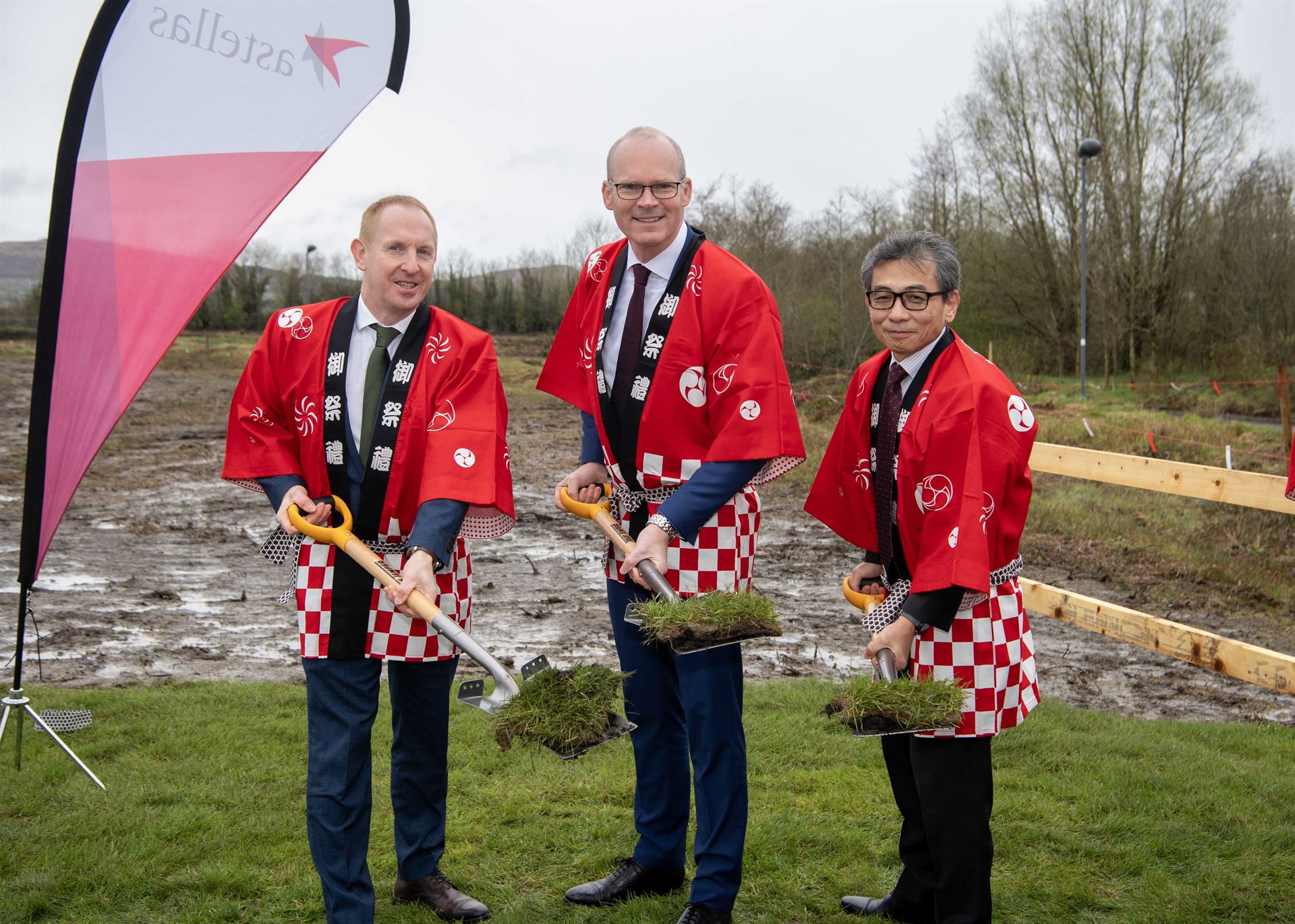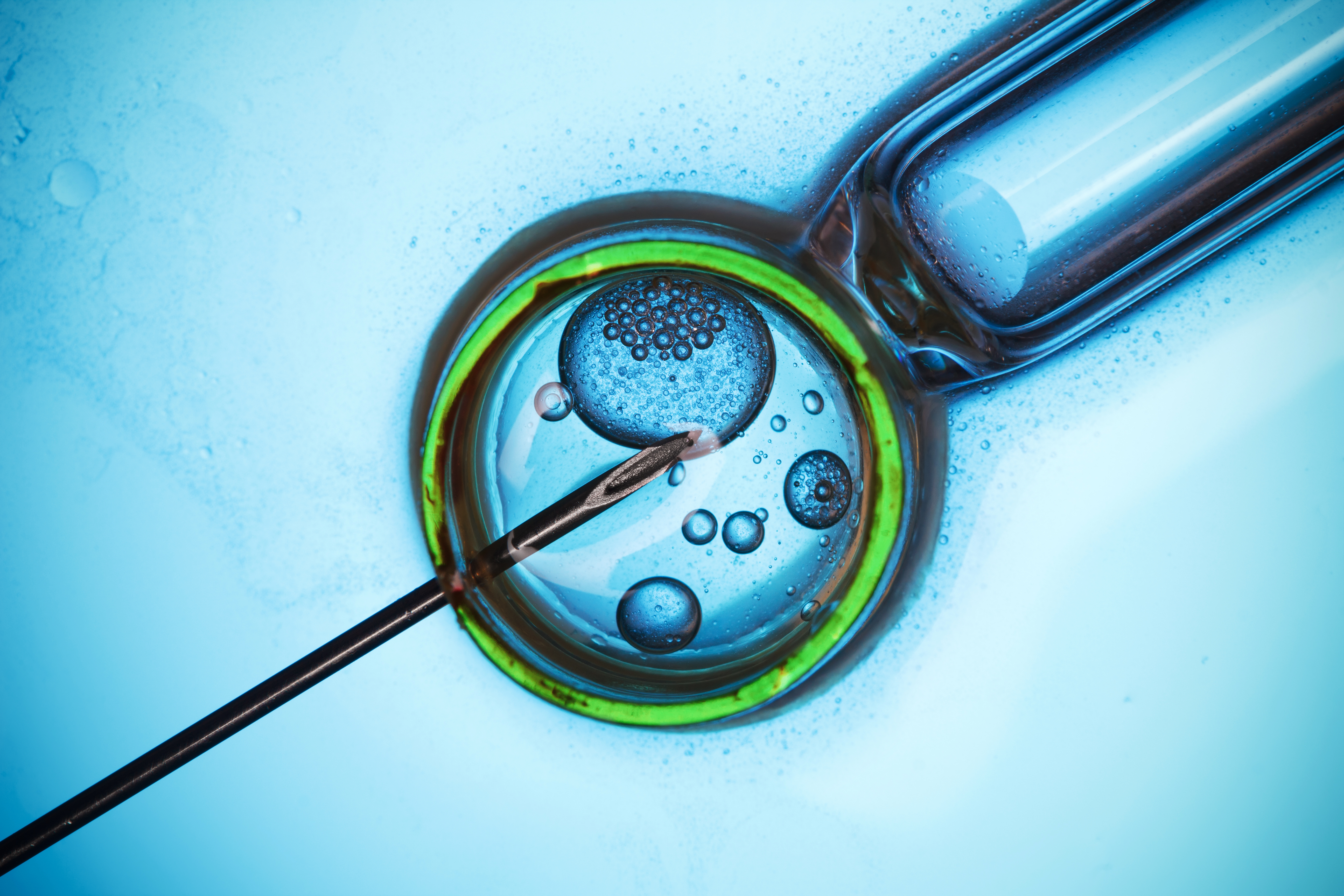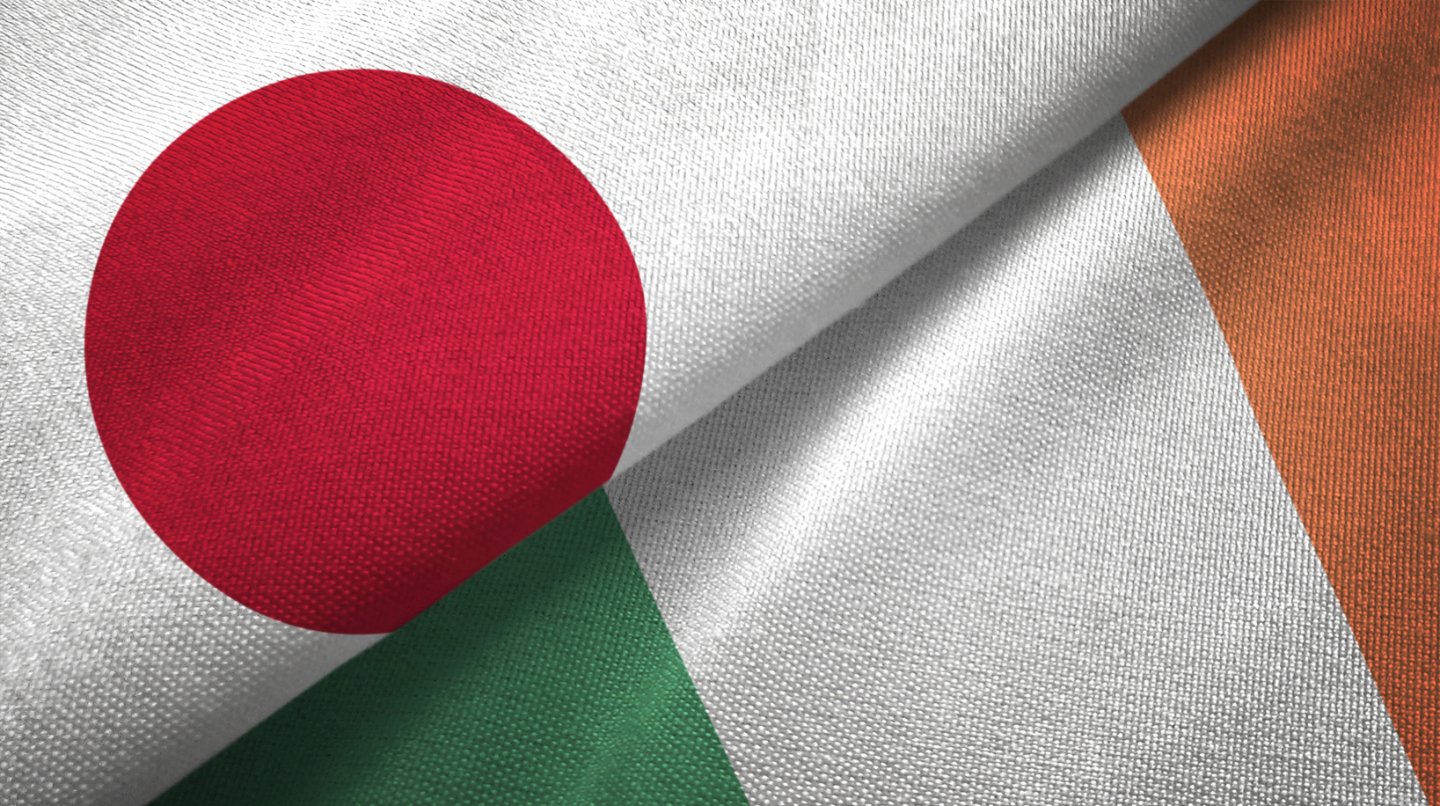Today, Japanese investment into Ireland is the largest from Asia and the fifth largest globally in terms of employment. There are 44 IDA Ireland client companies from Japan with 60 operations in this country, employing approximately 8,000 people. This investment spans sectors including information and communications technology, life sciences and pharmaceuticals, financial services, and renewable energy.
Why Ireland for Japanese business
Ireland is attractive to Japanese companies as it is the main English-speaking country in the European Union since the UK voted to leave in 2016. This strategic position makes it ideally suited for accessing the wider European single market, enabling companies to efficiently serve more than 450 million consumers.Even during recent challenges for global trade, Ireland’s small, open economy has remained one of the strongest in the EU. Preliminary data from the Central Statistics Office estimates that GDP grew 3.2% quarter-on-quarter in Q1 2025. The European Commission expects Ireland’s economy to grow by 3.4% for the full year 2025 and growth of 2.5% is forecast for 2026.
Political stability and OECD compliance
Underpinning this economic performance is Ireland’s political stability. For decades, the country has maintained a consistent pro-enterprise policy at Government level that has fostered a welcoming environment for international investors. Simply put, investors find it easy to do business here.Ireland is also part of the OECD’s global minimum tax rate of 15% for large multinational enterprises, ensuring compliance with international tax standards while maintaining the country’s attractiveness to investors.

Population in Ireland: growing and diverse
Ireland’s population of nearly 5.41 million people is relatively small but it is growing not just in size but in diversity: almost one in five people who call Ireland home were not originally born there. As Ireland’s economy has developed, growing numbers of people have relocated here to live and work – made easy thanks to membership of the EU. In some technology companies based in Ireland, the percentage of people in the workforce who were born outside Ireland is almost 50%.
The nation’s commitment to openness, investment in education – particularly in scientific, technical and engineering disciplines – together with its EU membership, have been pivotal in attracting foreign direct investment. The state agency IDA Ireland has been operating for more than 75 years, and in that time has successfully attracted international investment from around the world into Ireland. Now, more than 1,800 multinationals have operations across the country.
In fact, a noticeable trend among Japanese companies is their enthusiastic support of regional locations outside the capital, Dublin. Many invest in locations such as Cork, Kerry, Limerick, Clare, Galway, Waterford, and Donegal.
Japanese presence in Ireland
Some Japanese companies have multiple sites in Ireland, like Sumitomo Mitsui Banking Corporation (SMBC) and Mitsubishi, which have five each. Other well-known brands like Toyota and Canon also have operations in Ireland but don’t receive IDA Ireland support.Not surprisingly, technology features heavily among Japanese investors who invest in Ireland. Trend Micro, one of the world’s largest cybersecurity companies, runs its EMEA operations out of Cork. This began as a greenfield site in 2003, and now it employs 300 people who carry out many strategic functions for the business. Other familiar names such as Tokyo Electron and Nikon are embedded within Ireland’s semiconductor value chain which is one of the most impressive in Europe.
The life sciences arena includes familiar names like Takeda, which employs close to 1,000 people in Ireland across three sites. Astellas, another of Japan’s largest pharmaceutical companies, has operations in counties Dublin and Kerry. Recently it began developing an additional facility, in Kerry, which will give the company three factories in Ireland producing next-generation drugs for export to the global market. Goodman Medical, a subsidiary of Nipro, manufactures catheters in Galway in the west of Ireland, with most products exported back to the Japanese market.
 Arriving through acquisition
Arriving through acquisition
Acquisition has been a popular route into the Irish market for Japanese companies. Mitsubishi has been especially active, buying ElectroRoute, an Irish energy trading and services company, along with the elevator company Ascension Lifts.In 2012, SMBC acquired the aircraft leasing wing of RBS bank. This was a relatively small operation at the time but in the subsequent decade it expanded and moved its headquarters from Japan to Ireland, where it ultimately became one of the world’s largest aircraft leasing companies. SMBC, through another subsidiary JRI, set up a new site in Tralee that now employs more than 200 people and carries out many critical functions including a security operations centre.
In late 2023, SoftBank acquired a 51% stake in the Irish company Cubic Telecom, which specialises in communications for connected vehicles. Similarly NEC acquired an Irish radio frequency technology company, Aspire, and has subsequently reinvested in the business to expand its operations and add a R&D capacity.
Ireland’s supportive ecosystem for foreign investment
Japanese businesses often tell us that, when making these decisions, key influencing factors are the availability of talent and the pro-enterprise Government policies.
Another factor that gives Ireland a unique edge for investors is the supportive ecosystem dedicated to helping them to succeed. For example, education bodies are closely aligned with the needs of business. In many sectors, they work closely together to develop learning programmes and broaden the talent pool.
A partnership approach
Government agencies like IDA Ireland take a partnership approach to working with investors, coordinating site visits and arranging meetings with executives in peer companies already based here, giving new arrivals a sense of the environment and reassurance that their decision to locate in Ireland is the right one. IDA Ireland has extensive property solutions across Ireland, with land primed and ready for investors to avail of to set up operations quickly and easily.Through our concierge service, we can arrange introductions as needed to Government bodies, regulators, or professional tax, payroll and legal service providers – all with the aim of removing friction through the process of setting up.

Ongoing support for multinationals in Ireland
This can take the form of support and assistance in training and upskilling, or in areas like developing an innovative culture or operational transformation. For example, to help companies uncover innovative ways of working, upskill their people, and transform their operations, Ireland established research centres like the National Institute for Bioprocessing Research and Training (NIBRT), or Digital Manufacturing Ireland (DMI).NIBRT was set up to improve the process of manufacturing biologic-based medicines, which is a particular focus for Ireland due to the presence of 14 of the leading names in the industry already here. It has a twin remit to help companies advance their efficiency, safety and innovation in manufacturing. It also trains operatives in these new techniques. At the same time, NIBRT also researches emerging standards and innovations in the sector. Since it was founded in 2007, NIBRT has earned a global reputation for its work and its collaboration with international universities and partners.
 Dedicated to innovation
Dedicated to innovation
DMI is an industry-led organisation that enables Irish-based manufacturers to access, adopt and accelerate new digital technologies that solve real-world challenges and drive future competitiveness. Unlike academic centres focused on research, DMI aims to improve manufacturing processes using transformative digital technologies. Its digital factory facility at the National Technology Park in Limerick showcases new technologies in an industrial setting, and draws on the experience of senior leaders from industry with knowledge of adopting these advanced techniques and technologies inside a manufacturing environment. A Japanese audience might recognise echoes of the kaizen culture of continuous improvement in Ireland’s ongoing commitment to helping businesses based here to transform, improve and innovate.
Another aspect of Japanese business culture is relationships, and that’s why IDA Ireland assigns a relationship manager to every client company, whose role is to continue the dialogue long after the initial decision to set up in Ireland. We are on hand to listen to needs, and work to find solutions. In Ireland, we don’t see business as purely transactional but as a true partnership: your success is ours, too.
